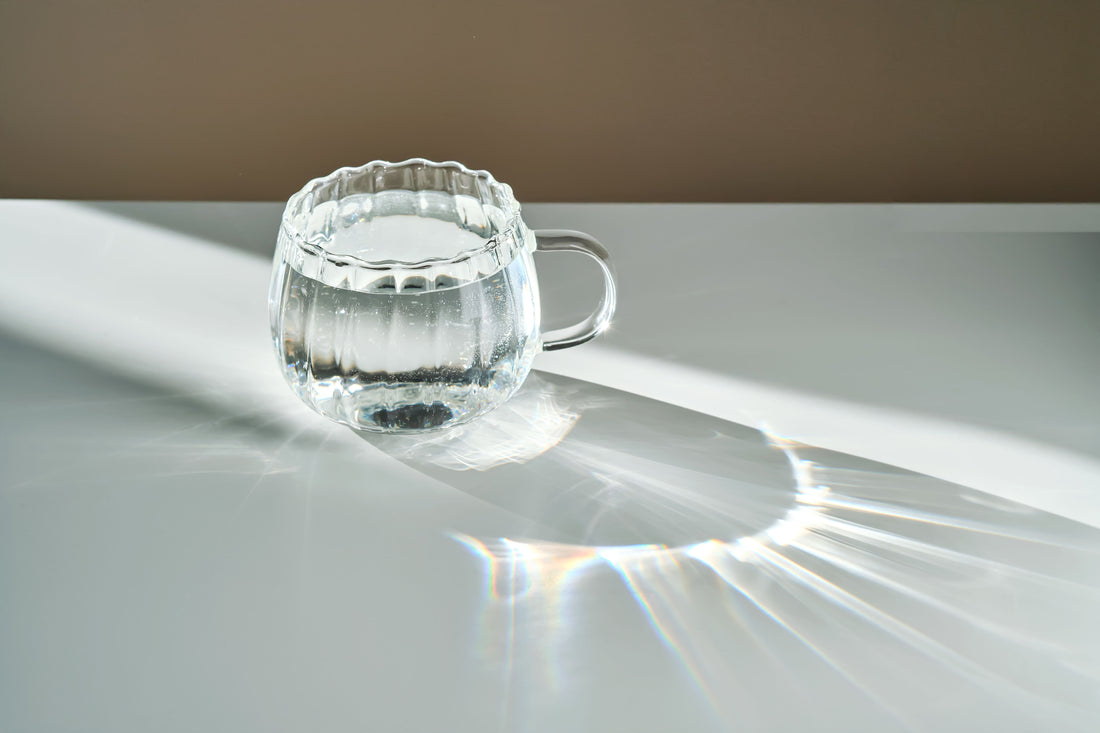We’ve all heard the advice to drink plenty of water throughout the day, but what about one final glass before bed?
It’s a question that we’ve all asked: Is it a good idea to drink water right before bed. Some say it's a great way to keep dehydration at bay, while others warn it could lead to restless nights and multiple trips to the bathroom.
In this post, we discuss the pros and cons of drinking water before you sleep, uncovering what science says and what it means for your nightly routine.
Importance of Hydration
Drinking water and staying hydrated might seem like a simple task, but it’s the foundation of good health. It offers a range of benefits, supporting nearly every function in your body. Here’s a quick look at some of the benefits:
- Boost Brain Power: Ever felt a bit foggy or sluggish? Proper hydration can help sharpen your focus and improve memory.
- Keep Digestion Smooth: Water is essential for digesting food and absorbing nutrients. A lack of proper hydration can lead to irregular bowel movements, bloating and other digestive discomfort.
- Support Weight Management: Water can be a handy ally in weight management. It helps control appetite and boosts metabolism, making it easier to maintain a healthy weight. Plus, sometimes our bodies confuse thirst with hunger, so drinking enough water can help keep extra snack cravings at bay.
- Ease Joint Pain: Our joints contain 80% of water. Proper hydration helps cushion your joints and keeps them lubricated.
- Regulate Your Body Temperature: When you are dehydrated, your body is more likely to store more heat, making it harder to stay cool. By staying hydrated, your body is able to produce sweat, helping your body cool down.
- Prevent Kidney Stones: Drinking plenty of water can help prevent kidney stones by diluting the substances in your urine that lead to stone formation.
- Support a Healthy Heart: Hydration is essential for heart health. When you're dehydrated, your blood volume decreases, making it harder for your heart to pump blood effectively. This can lead to increased heart rate and potentially higher blood pressure – ultimately putting strain on the heart.
- Keep Headaches at Bay: Many headaches are a result of dehydration. By drinking enough water, you can help prevent those painful, throbbing sensations.
Finding The Balance Between Hydration & Sleep
While staying hydrated is vital for your overall health, it’s equally important to balance it with getting a good night’s rest. Finding the right balance between hydration and sleep can make a big difference in how you feel each day!
Your body has a natural rhythm when it comes to hydration and sleep. At night, it naturally decreases urine output to help you enjoy six to eight hours of uninterrupted sleep.
However, if you drink too much water right before bed, you might disrupt this rhythm. Frequent nighttime trips to the bathroom can interfere with the quality of your sleep, preventing you from reaching those deep, restorative stages.
While the occasional visit to the loo is perfectly normal, excessive disruptions can lead to poor sleep quality and impact your overall health. Sleep deprivation, in turn, can lead to a host of issues, including high blood pressure, high cholesterol levels, weight gain, memory loss, and increased stress and mood swings.
The Benefits of Water Before Bed
It’s important to note that drinking water doesn’t mean drinking a large amount in one sitting, but rather consistently throughout the day. So, while you might have heard mixed opinions about drinking water before bed, there are several benefits to incorporating it into your evening routine. These include:
- Cleanses Your Body: Staying hydrated helps your body efficiently break down waste and release toxins. Drinking some water before bed can aid in this natural cleansing process, helping to flush out impurities through your kidneys and sweat.
- Helps Regulate Body Temperature: If you’re feeling extra warm or are in a particularly heated environment, drinking water before bed can help cool your body down. A small sip of water or even sucking on ice cubes can be a refreshing way to regulate your temperature, making it easier to drift off to sleep.
- Supports a Relaxing Bedtime Routine: For some people, incorporating a glass of warm water into their evening routine can be a soothing way to wind down. For those battling a cold or flu, a warm glass of water can also provide relief from symptoms.
- Replenishes Lost Fluids: If you tend to breathe through your mouth while sleeping, you’re likely losing more water than if you were breathing through your nose. This is especially true for people with nasal congestion or other respiratory issues. Drinking water before bed helps replenish the fluids, supporting overall hydration.
What To Consider When Drinking Water Before Bed
While staying hydrated is important for your health, drinking water right before bed might not be ideal for everyone. Here are a few considerations to keep in mind to ensure that your evening hydration doesn’t interfere with your sleep:
- Nocturia: This term refers to the need to wake up during the night to urinate. Drinking a large amount of water before bed can increase your chances of experiencing nocturia, disrupting your sleep with frequent trips to the bathroom. If you find yourself waking up multiple times during the night, it might be worth adjusting your fluid intake closer to bedtime.
- Bedwetting: For children and some adults, drinking too much liquid before bed can lead to bedwetting. If you or your child are prone to this issue, reducing fluid intake in the evening can help manage and prevent occurrences, promoting a more restful night’s sleep. This can be accompanied by bedwetting alarms which help reduce the likelihood of accidents during the night.
- Potential Reflux Concerns: Drinking water too close to bedtime can sometimes contribute to acid reflux or heartburn, especially if you’re prone to these issues. If you experience discomfort from reflux, try to drink your water earlier in the evening and avoid lying down immediately after consuming fluids.
- Discomfort and Bloat: Overloading your system with water right before bed can lead to discomfort and bloating. This can make it harder to fall asleep and might cause an uneasy feeling throughout the night. To avoid this, sip on smaller amounts of water and allow your body time to process it before you hit the hay!
Tips for Drinking Water Before Bed
If you are looking to strike the perfect balance between sleep and hydration, here are a few tips to consider:
- Moderation is Key: While staying hydrated is important, it's best to avoid drinking large quantities of water right before bed. Instead, focus on moderate amounts earlier in the evening and throughout the day. This way, you can keep your body well-hydrated without overwhelming your bladder just before you sleep.
- Timing Matters: Aim to drink the majority of your daily water intake during the day and early evening. Try to finish your fluid intake at least an two hours before bedtime. This allows your body enough time to process and eliminate excess water, reducing the likelihood of nighttime trips to the bathroom.
- Go to the Loo Before Bed: Make it a habit to visit the bathroom right before you go to sleep. This simple step can help empty your bladder and minimise the chances of accidents or waking up in the middle of the night.
- Listen to Your Body: Pay attention to how your body responds to evening hydration. If you notice that drinking water before bed consistently disrupts your sleep, consider adjusting your hydration schedule. Everyone's needs are different, so finding what works best for you is essential to achieving a good night's rest.
Sleep Soundly with Nighthawk
Finding the right balance with your evening hydration can help you enjoy both restful sleep and the benefits of staying well-hydrated. By moderating your fluid intake, timing your drinks appropriately, and listening to your body, you can minimize nighttime disruptions and support better sleep quality.
If bedwetting is a concern, we have a solution that can help. Nighthawk is a state-of-the-art enuresis alarm that is a safe and effective tool designed to address bedwetting issues. With a success rate of over 90%, this advanced alarm trains the brain to wake up and use the toilet by creating a small sound and vibration when the first trace of urine is detected.
Don’t let bedwetting disrupt your or your child’s sleep any longer. Discover how our bedwetting alarm can make a difference and support better nighttime routines. Get in touch to learn more and find the perfect solution for a restful night’s sleep.


